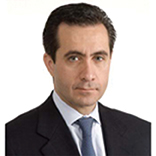By Peter Richards
CMC Caribbean Correspondent
CASTRIES, St. Lucia CMC – A senior official of the World Bank said, on Tuesday, that the different economies of the Caribbean face common challenges, including low growth and vulnerability to external shocks.
Jorge Familiar, the World Bank’s vice president for Latin America and the Caribbean, told the Third Regional Growth Forum (RGF) that the two-day event should provide delegates from the regional and international community with an opportunity to discuss new strategies and tools necessary to achieve growth as well as examine how can the region better exploit its openness to trade.
He said the delegates should also be prepared to examine how can the Caribbean private sector better harness growth opportunities coming from trade even as he acknowledged that the Caribbean region is very diverse in its rich and varied cultures, languages, geographical settings of mainland to island nations.
“Yet we are here together because despite these differences, many of these small economies are facing common challenges,” he said.
He said with some notable exceptions like the Dominican Republic, most countries in the region are finding it difficult to revive growth after the global financial crisis of 2008.
“As small and open economies, the island states tend to have production and exports concentrated in one or two sectors, which brings uncertainty driven by terms of trade volatility”
He said the region’s vulnerability to external shocks was exposed during the global financial crisis.
Familiar said Small Island Developing States (SIDS) typically have relatively higher investment rates, while their saving rates are low.
“This combination of high spending with low savings makes it difficult for a country to build enough buffers that can be used in bad times. This decreases their capacity to face external shocks.”
He said most small Caribbean countries, particularly the Eastern Caribbean States, depend almost entirely on oil to supply their electricity needs – with oil and gas expenditures taking between seven to 20 per cent of some countries’ GDPs.
“All these factors combined contributed to trap many countries in a vicious cycle of low growth, high debt and limited fiscal space.
“Adding to these challenges, the region is also exposed to recurrent natural disasters. The hurricane season has started and Caribbean states are among the countries in the world most exposed to natural hazards. Five out of the ten most disaster prone countries in the world are Caribbean.”
The World Bank official said to revive growth and sustain it, there is need to address these challenges together.
He said the first phase of the Caribbean Growth Forum has put the spot light on improvements in investment climate, logistics and connectivity, and skills.
“These are necessary foundations to harness growth. But, efforts need to be sustained to effectively respond to the changing economic environment.
“Small economies have no choice but to choose. For instance, they have to choose what kind of industries they will rely on to spur growth. And for this, they have two strategy options: Let the market choose: this is the example of the medical industry in Grenada.”
He said the region could take more proactive public policy approaches as in the case of Costa Rica, which embarked on a comprehensive set of reforms to transform an agricultural rural based economy into a high tech export economy.
He said Costa Rica started by identifying industries in which it would be competitive, investing in human capital and changing its education system and curriculum, and opening up to the global economy with smart policies to attract certain types of Foreign Direct Investment.
“This was done in the context of resolving an unsustainable debt problem inherited from the 1980s. So, in a region like the Caribbean, in spite of diversity there are many challenges we can face together.”
He said tackling these issues effectively requires efforts at the regional level, since effective solutions call for either risk pooling or economies of scale:
Familiar said the Caribbean Catastrophe Risk Insurance Facility’s (CCRIF), as the first multi-country catastrophe risk pooling mechanism able to mobilize emergency funds within the first two weeks of the disaster, is a good example of how regional integration designed to take advantages of economies of scale is critical.
All OECS countries are members of the CCRIF and Central American countries are now joining the facility.
Regarding trade, the World Bank official said there is significant potential for boosting trade.
“Our recent analysis…suggests that while entrepreneurs are already seeing improvements in the business climate, continued efforts to improve trade facilitation and step up investments in research and innovation, as well as quality education, will help improve skills and generate well-paid jobs in the Caribbean.”
He said there is also need for working together to improve the investment climate through better transport and better access to electricity.
Familiar said movements of goods and services between islands are limited.
“Caribbean maritime connectivity remains low compared to other small island economies. Coming to St Lucia, we have all experienced the challenge of limited connecting flights, even for those of you who came from a neighboring island. Improving connectivity through air and sea could unlock the potential for tourist’ island hoping and facilitate intra-regional trade,” he said.
He said on the issue of energy security, last January, Caribbean leaders and leading energy partners agreed to pursue a joint regional framework for energy development at the Caribbean Energy Security Summit hosted by US Vice President Biden in the United Sates
He said in response, the World Bank is working with CARICOM and other partners to build a coordinating platform to share knowledge, technical assistance and resources in efforts to make the energy sector more efficient, sustainable, green and attractive to investors.
 Pride News Canada's Leader In African Canadian & Caribbean News, Views & Lifestyle
Pride News Canada's Leader In African Canadian & Caribbean News, Views & Lifestyle





